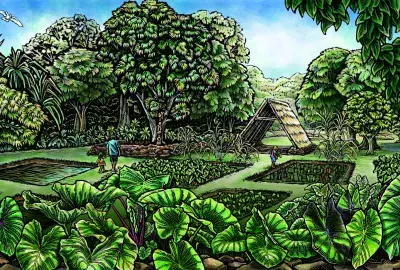
The spread of smallholder cash cropping in Myanmar’s southeast is undermining Karen customary land use practices and communal tenure. The ceasefire agreement reached in 2012 with the main Karen rebel group, the KNU, led to a rapid expansion of smallholder cash cropping. Based on field research during 2020–2023 in 19 Karen villages under Karen rebel administration, we found smallholder agriculture to have directly contributed to significant land use change and the privatization of communal forestland. Wealthier Karen villagers and newly arrived non-Karen migrants are increasingly replacing Karen traditional swidden rice farming and their communal tenure system with that of private household cash cropping plots with land titles. This agrarian change has increased land disparity and economic inequality, and transformed Karen relations to land and the Karen rebel group. These findings point to challenges for community-led forest conservation, the revitalization of the traditional Karen governance system, and ethno-nationalist struggles for federal democracy.
Photo credit: Kevin Woods
The spread of smallholder cash cropping in Myanmar’s southeast is undermining Karen customary land use practices and communal tenure. The ceasefire agreement reached in 2012 with the main Karen rebel group, the KNU, led to a rapid expansion of smallholder cash cropping. Based on field research during 2020–2023 in 19 Karen villages under Karen rebel administration, we found smallholder agriculture to have directly contributed to significant land use change and the privatization of communal forestland. Wealthier Karen villagers and newly arrived non-Karen migrants are increasingly replacing Karen traditional swidden rice farming and their communal tenure system with that of private household cash cropping plots with land titles. This agrarian change has increased land disparity and economic inequality, and transformed Karen relations to land and the Karen rebel group. These findings point to challenges for community-led forest conservation, the revitalization of the traditional Karen governance system, and ethno-nationalist struggles for federal democracy.
Photo credit: Kevin Woods
AsiaPacific Issues
View All




